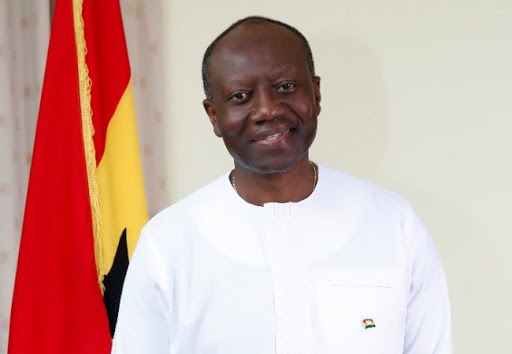The government expects revenues to fall short of the 2020 budget target by GH¢13.6 billion, or 3.5 percent of revised Gross Domestic Product (GDP), mainly due to drop in petroleum receipts of GH¢5.3 billion.
Finance Minister, Ken Ofori-Atta, in his presentation of the Mid-Year Budget to lawmakers in Accra, noted that aside the weak performance of petroleum revenue, the projected fall in revenue relative to GDP is attributable to estimated shortfalls in non-oil tax revenue of GH¢5.1 billion and non-tax revenues of GH¢3.3 billion.
“Revenue from upstream oil and gas amounted to GH¢1.99 billion (0.5 percent of GDP), 55.4 percent lower than the programmed target of GH¢4.47 billion. This was mainly on account of lower volumes and significant drop in crude oil prices on the international market,” he said.
Prior to COVID-19, the Nana Akufo-Addo led administration had projected oil to trade at US$62.6 per barrel, which was later revised downwards to US$39.1 per barrel after the Russia and Saudi Arabia oil price war, coupled with the slowdown in economic activity caused by the pandemic, resulted in the global oil price crash.
Even at the revised benchmark of US$39.1, oil has, for the large part of the year, traded below the US$30 per barrel mark thus far, leaving producing economies like Ghana with a huge in deficit in revenue, amidst the increasing expenditure in health and slowdown in domestic output.
Given that this is also an election year, the projected drop in revenue against increasing expenditure on health and other COVID-19 related activities, could starve the ruling government of much needed funds to fulfil promises made to Ghanaians and could severely affect the incumbent President’s bid for a second term in office.
Locally, the minister said the impact of the Coronavirus pandemic is being felt heavily on the petroleum sector, particularly on exploration, appraisal and production of oil and gas activities, as it has led to delays in implementing the 2020 work programmes of operators.
According to the Petroleum Commission, projects valued at US$324 million across the petroleum upstream sub sector have stalled or been postponed due to the pandemic, with Aker Energy, for instance, having notified the Ministry of Energy of the postponement of the Pecan field development earlier this year.
“This has impacted the delivery of first oil from the Pecan project, thereby postponing projected revenues to government. These postponements could weaken the critical role of the oil and gas sector in propelling economic growth,” Mr. Ofori-Atta lamented.
Meanwhile, non-oil tax revenue, comprising taxes on income and property, goods and services and international trade, amounted to GH¢16.73 billion or 4.3 percent of GDP, which is 16.2 percent below the programmed target of GH¢19.95 billion or 5.2 percent of GDP.
The lower than programmed performance in non-oil tax revenue, he added, “was driven by the underperformance of non-oil tax handles such as domestic VAT, Petroleum Excise taxes, domestic National Health Insurance Levy, and GETFund Levy.”
However, Personal Income Tax and Communication Services Tax both out-performed their respective targets for the period.










